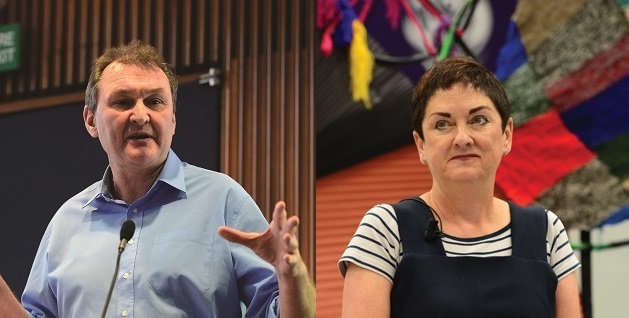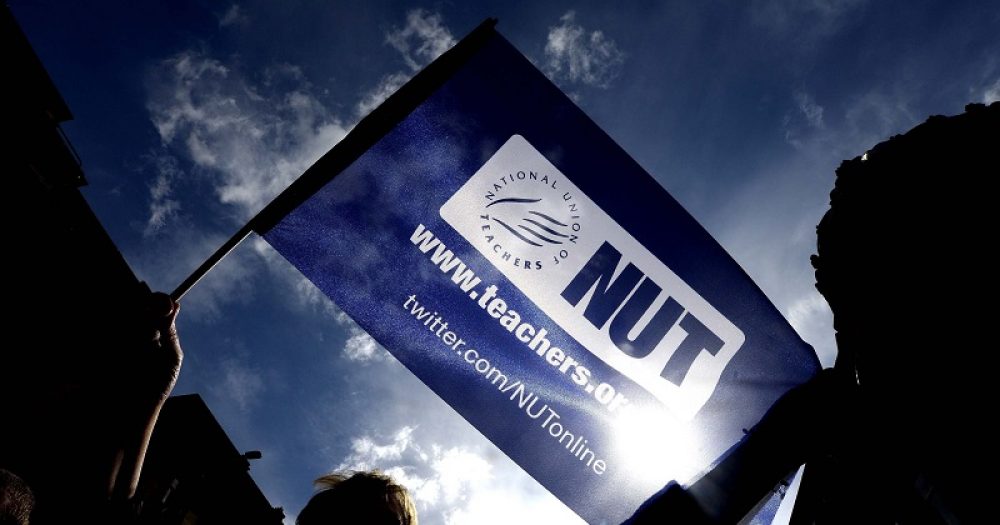Members of the National Union of Teachers and Association of Teachers and Lecturers have voted to form a new organisation – the National Education Union.
The new union will officially come into being on September 1 of this year.
The vote has been described as “historic”, with significant ramifications for schools and those who work in them.
Here’s what we learned this morning.
1. NUT and ATL members voted overwhelmingly in favour of the change
22 per cent of NUT members voted in the ballot. Of those who did, 97.2 per cent were in favour of amalgamating.
25 per cent of ATL members voted. Of those, 73 per cent were in favour of the move.
Although the turnout might seem low, the figures are actually considered quite high for union votes.
Last year’s NUT general secretary election, Kevin Courtney was elected on a turnout of just 10.7 per cent.
2. NEU will be a very large union, and it wants to grow further
The National Education Union will have more than 450,000 members when it starts on September 1.
We don’t think the job is finished with the NEU – Kevin Courtney
This makes it the largest education union in Europe and the fourth largest union in the UK.
However, its leaders have ambitions for growth – with plans to target new teachers and seek talks with other education unions about possible future mergers.
Kevin Courtney said today that NEU’s door was “open to other organisations”.
“We don’t think the job is finished with the NEU, so if any of the other organisations want to have those discussions with us, we’re ready to have them right now.”
3. The new union will have two general secretaries for its first 5 years
NUT general secretary Kevin Courtney and ATL general secretary Mary Bousted will lead the organisation together until 2023 and then stand aside ahead of an election for one single general secretary.

The two leaders admitted today they had contemplated diving the role, with education policy going to Bousted and a campaigning role to Courtney, but the idea was dismissed after “about five minutes”.
“We’ve got five years and then there will be a new general secretary elected and we’re quite clear that we won’t stand against each other,” Bousted said.
“It would be catastrophic to do that, for the union, it would be divisive. And besides that, we’ll have had enough. We’ll want to do something else by then.”
Courtney added: “We’re more or less the same age so by 2023 we’ve talked about the fact that we’ll be at a point where retirement will seem like a good option, and really, at that stage, the new union needs to elect somebody who has been in the new union…who is elected from the NEU.”
4. Co-operation with the government is on the cards, but not over grammar schools
Bousted and Courtney say the NEU will work with government on some issues – like workload, for example.

However, they will not agree to the government’s plans to expand selection, pledging “outright opposition” to the policy.which she labelled “stupid” and claimed it had “no evidence behind it”.
Bousted labelled the grammar plan as “stupid” and claimed it had “no evidence behind it”.
“I don’t think it’s a policy that Justine Greening wants to do, I think she’s been landed with it and I think that’s unfortunate.”
Bousted said the union will campaign on making parents understand their children are “highly likely” to get a secondary modern education.
The new union will also seek legal advice if the government tries to open new grammar schools without a vote in parliament to overturn the ban.
5. The union will admit unqualified teachers and support staff
The NEU will be a union of teachers and “allied professionals”, which means it will admit unqualified teachers, something the NUT currently does not allow.
It will also represent school support staff and leaders, in keeping with the current membership make-up of the ATL.
This will be a successful union which will not spend its time in its opening years fighting and jockeying for position
Both leaders spoke of the need for it to stand up for workers in all schools, including academies and independent schools.
According to Courtney, it is the first time most teachers have been in the same professional organisation “in decades”.
“We’ve read the literature around trades union mergers, and we know that that can happen,” said Courtney, who said there was “so much goodwill” between the two organisations.
“This will be a successful union which will not spend its time in its opening years fighting and jockeying for position,” Bousted added.
6. Industrial action will be ‘stronger’… but still a last resort
The NUT is traditionally more militant, the ATL more moderate. Questions hang over how this will be reconciled.
Any action by the new union will have a bigger impact due to the larger numbers, but proposed changes to trade union law could change the way industrial action is organised.
“It will probably be more locally-based, around multi-academy trusts, around particular schools and around particular issues,” Bousted said today, claiming it would only ever be considered “when everything else has failed”.
Courtney said strike action was “not what any set of workers wants to do” but “if push comes to shove, then we’re in a place where [industrial action] will be stronger. Governments should listen to that and not put us in a position where that happens.”








I’ve been a NUT member for over thirty years and I voted for amalgamation. But I do not approve of the decision to admit unqualified teachers. Teaching assistants, yes. Teachers-in-training, yes. But unqualified personnel educating children, no.